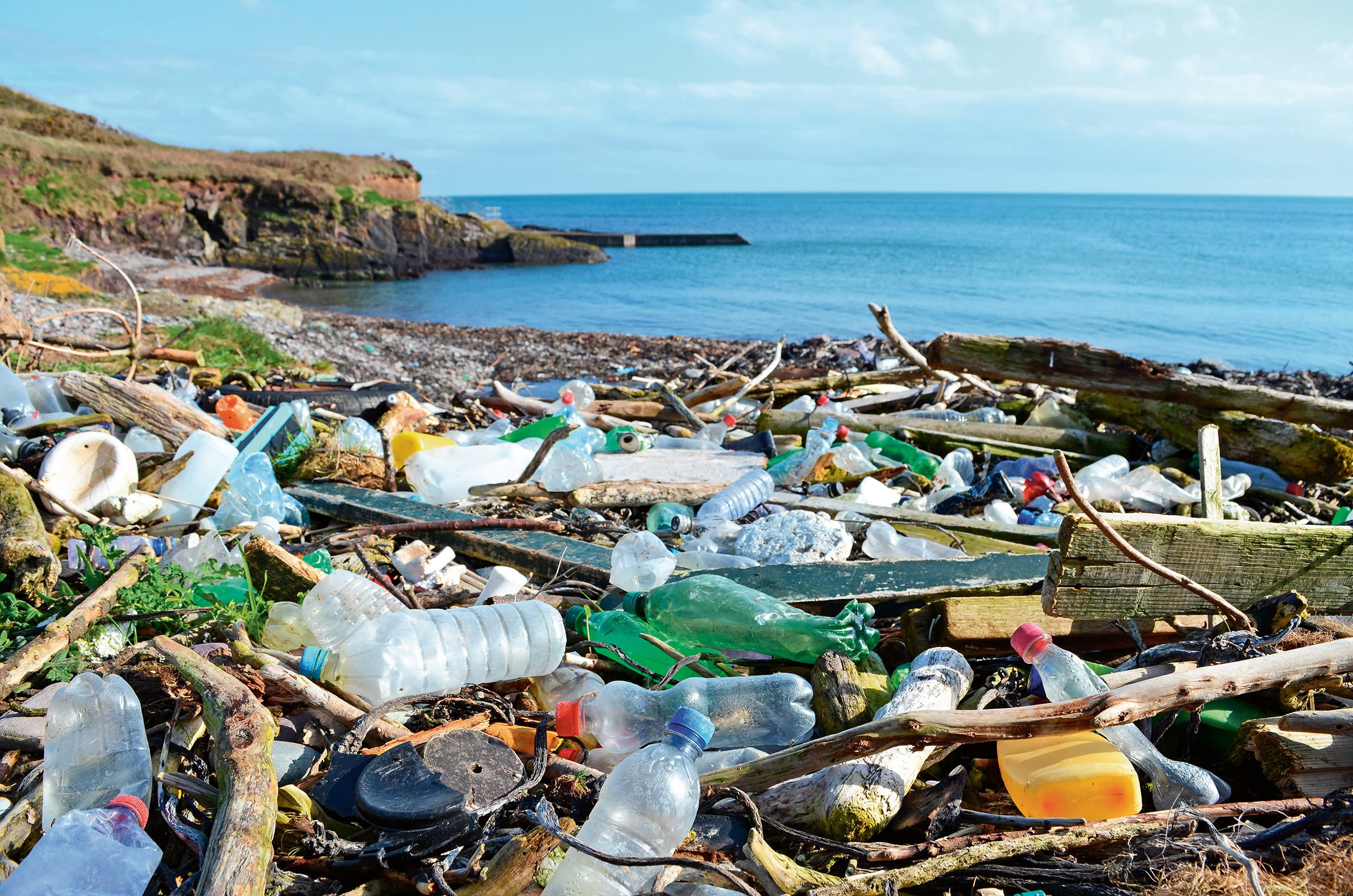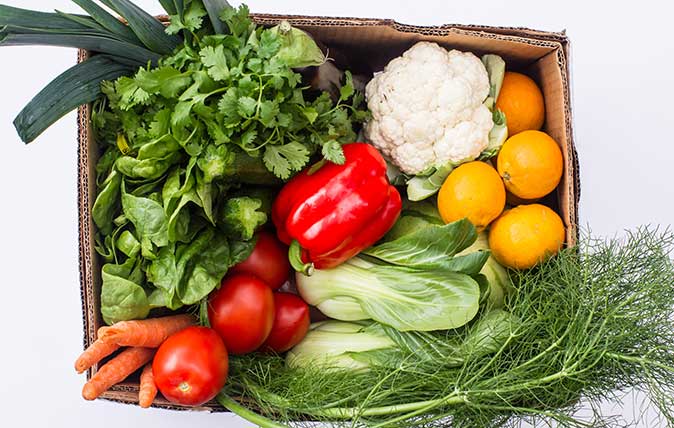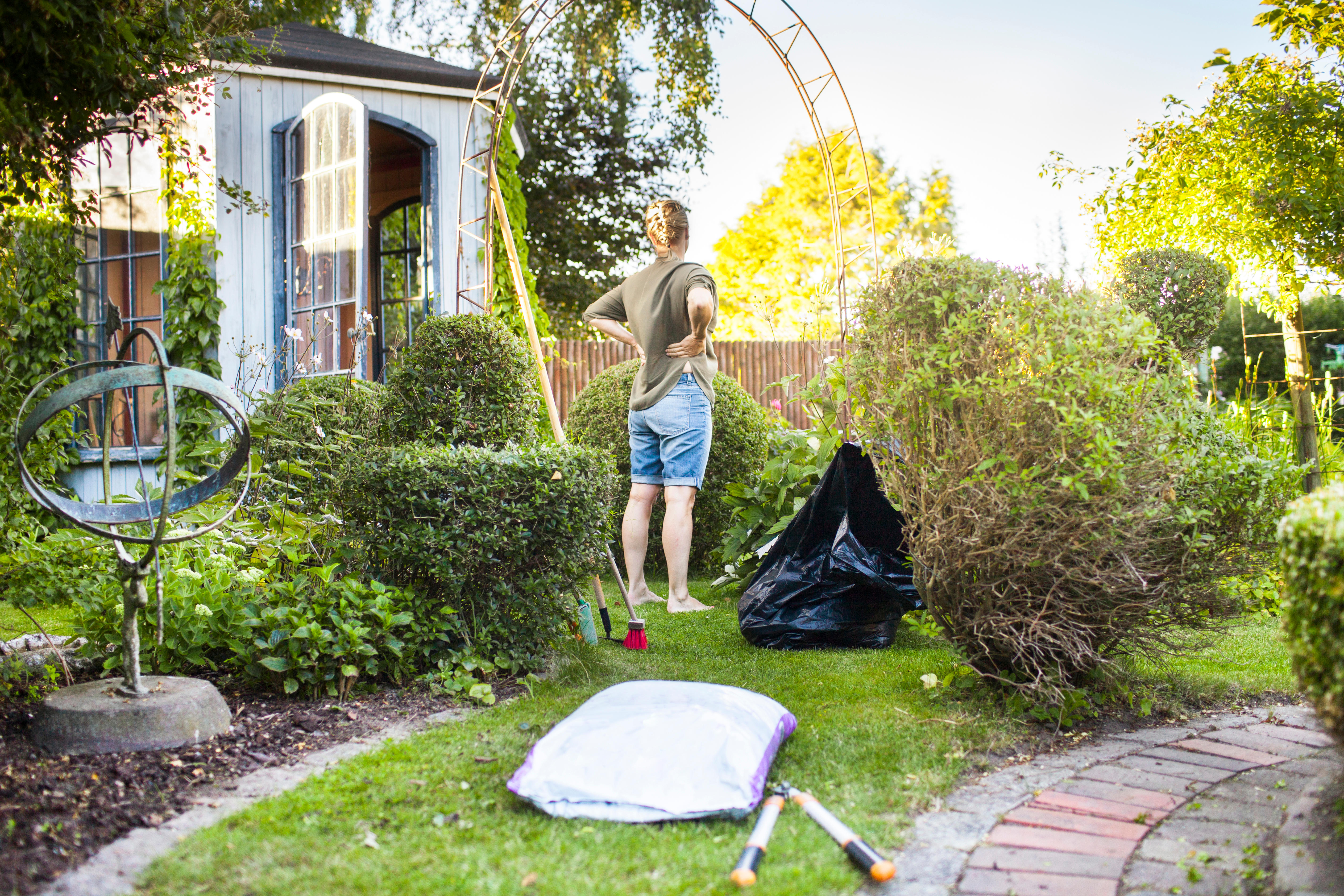Jonathan Self: ‘Going plastic-free for a week – how hard can it be? Jolly hard is the answer’
Jonathan Self finds that eschewing plastic for a week is testing, but achievable, even if his quest for locally grown strawberries packed in wooden punnets proves fruitless.


Everything important to our family’s well-being that enters this house (such as wines, spirits and mixers) does so in glass bottles. We always — well, nearly always — use canvas shopping bags and have purged our home of cotton buds. Linnaeus himself couldn’t come up with more ways to classify and divide our rubbish. Should the Olympic Committee decide to make composting a sport, we could represent our country.
True, we haven’t been able to completely break our antibacterial handwipe habit or our penchant for Italian mineral water, but, nevertheless, we feel we’re doing our bit for the planet.
We aren’t smug about it — okay, perhaps we are a little bit smug about it — but we certainly aren’t complacent. Thus, when the twins, Charlotte and Oliver, 14, came home from school one afternoon and suggested that we participate in something called Plastic Free July (essentially, a week experimenting with a strict low-plastic diet), they found their parents receptive. We’re halfway there, we told ourselves — we even use shampoo bars (those of us who have hair, I mean), so how hard can it be?
Jolly hard is the answer. If we are really serious about going plastic-free, we ought to give up anything powered by electricity and also our car (there’s a surprising amount of plastic in cars). Too extreme for us.
We decided, instead, to focus on everyday items. A quick pre-diet check revealed that everything in the freezer was wrapped in plastic and half the food in the fridge was similarly afflicted. I’m ashamed to reveal what I found in our bathroom cabinets, the potting shed and the playroom.
Tempting as it now is to provide you with a minute-by-minute account of our seven plastic-free days, I will resist regaling you with what is, essentially, a dull tale (unless you want to hear about my fruitless, sorry, search for locally grown strawberries in wooden rather than plastic punnets).
In a nutshell, it was relatively easy to avoid plastic-wrapped food, although it meant more time shopping and a somewhat limited diet. It was slightly trickier when it came to skincare, make-up and toiletries, but, as it was only for a week, we were able to manage. Most difficult were things such as medication, vitamins and household cleaners.
Exquisite houses, the beauty of Nature, and how to get the most from your life, straight to your inbox.
However, what we discovered along the way was that, with a modest amount of deprivation, a smidgeon of postponement and the considerable annoyance of having to explain ourselves to shopkeepers on a regular basis, it was possible to reduce our plastic consumption in a relatively meaningful way.
Was it worth it? Yes, and I’ll tell you why: our family’s devotion to, say, HP in squeezy bottles, fleece jackets and the M&S Foodhall (where they virtually wrap each grape for sale in plastic) is nothing compared with our devotion to Nature.
'Plastic is fantastic... the problem is that its indestructible'
Plastic is fantastic. It’s light, durable, strong, sturdy, flexible and extremely inexpensive to manufacture. It can be used to make everything from sauce sachets to replacement heart valves and from disposable cutlery to aeroplanes.
The problem is that it’s effectively indestructible. The amount of plastic made since the dawn of mass production is equivalent to the weight of a billion elephants, and almost every single piece of it still exists. Larger pieces may slowly break down into smaller and smaller pieces, but it never completely disappears – even incineration turns it into highly toxic pollution that every environmentalist on earth agrees is worse than putting it into landfill.
This is nothing short of disastrous for the world’s ecosystems. Plastic is polluting our seas, our beaches and our countryside. More to the point, it’s killing off our wildlife. Convenience be damned: what we care about, what we love, what we all need in order to survive, must come first.
In his TV series Blue Planet II, Sir David Attenborough explained how millions of birds, fish and Cetacea die every year, either because they’ve swallowed plastic (often mistaking it for food) or because they’ve been strangled or suffocated by it. When dumped or put into landfill sites, plastic leaches harmful chemicals, causing death and destruction.
Especially worrying is that plastic microfibres, which account for a third of all the plastic in the ocean and attract and bind with harmful toxins, end up in the human food chain. As The Prince of Wales, president of the Marine Conservation Society, succinctly and chillingly put it: ‘Plastic is now on the menu.’
Although the statistics are depressing — our reliance on plastic has grown to the point where humanity produces its own weight in plastic every year, 90% of birds have plastic in their system, if things continue as they are there will be more plastic in the sea than fish within three decades, and worse — the news is not all bad. At long last, national governments are introducing anti-plastic legislation and businesses are improving their bad plastic ways.
Nonetheless, we consumers need to keep the pressure on. I recommend a week with less plastic as an excellent way to start.
Nine things you can do
- Invest in a copy of Plastic Soup: An Atlas of Ocean Pollution by Dr Michiel Roscam Abbing. Thanks to some great photographs and maps, it makes a com-plicated subject easy to understand and it’s packed with effective ways for us all to do our bit
- Reduce your use of plastic when-ever and wherever possible. The top 10 causes of plastic pollution, by the way, are crisp packets, wet wipes, sandwich wrapping, sauce sachets, ready-meal trays, pet-food pouches, cotton buds, plant pots, straws and wrapping paper
- Stock up with reusable shopping bags, takeaway coffee cups and water bottles
- Download this useful and informative app to your phone: www.mylittleplasticfootprint.org
- Refuse plastic bags and packaging and tell the retailer why
- Discover what sorts of plastic your local authority will accept for recycling — at the moment, only 9% of plastic is recycled (often badly), but it’s definitely the way forward
- If you have any clothes that contain manmade fibres (honestly, no one is judging you for it), then get a Guppy-friend or a Cora Ball (really, that’s what they’re called) for your washing machine. They’ll prevent the microfibres from getting into the water system
- Join the Marine Conservation Society, one of the most successful anti-plastic lobby groups in the world and the organiser of the Great British Beach Clean from September 20 to 23 – www.mcsuk.org
- Sign up to Plastic Free July – www.plasticfreejuly.org

Credit: Alamy
Living without plastic: Part 8 | Hospitals, coffee cups and twelve brilliant products which will help you live a plastic free life
Country Life's Rosie Paterson went the whole of Lent without buying anything – anything at all – that contained plastic. That was

A life without plastic: Why it’s going to take more than a few incremental changes to save our planet

Credit: Alamy Stock Photo
Plastic-free gardening: Five ways to help keep your garden free from pointless plastic
It's not just food, clothes and household stores which use an absurd amount of plastic packaging these days – gardening
After trying various jobs (farmer, hospital orderly, shop assistant, door-to-door salesman, art director, childminder and others beside) Jonathan Self became a writer. His work has appeared in a wide selection of publications including Country Life, Vanity Fair, You Magazine, The Guardian, The Daily Mail and The Daily Telegraph.
